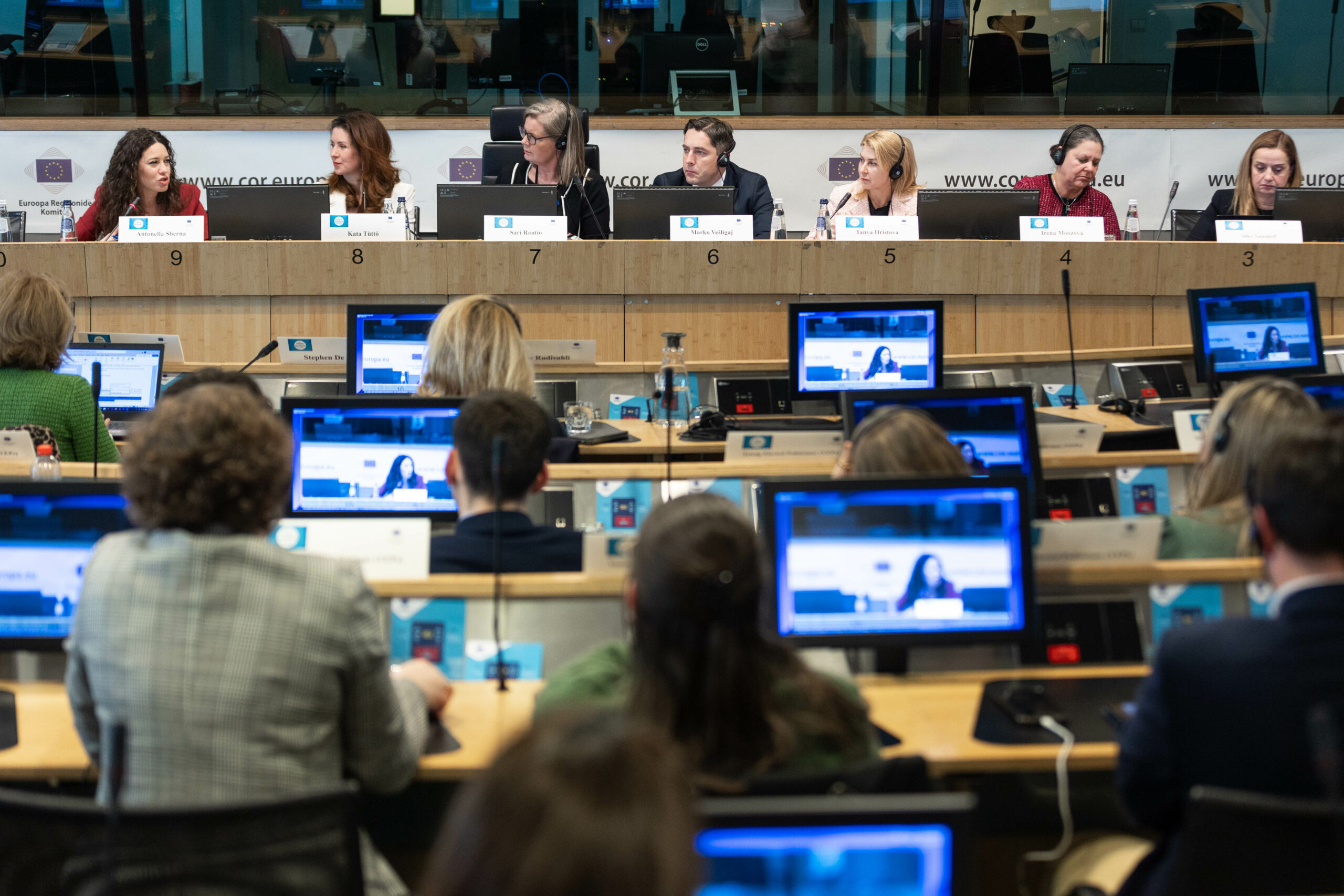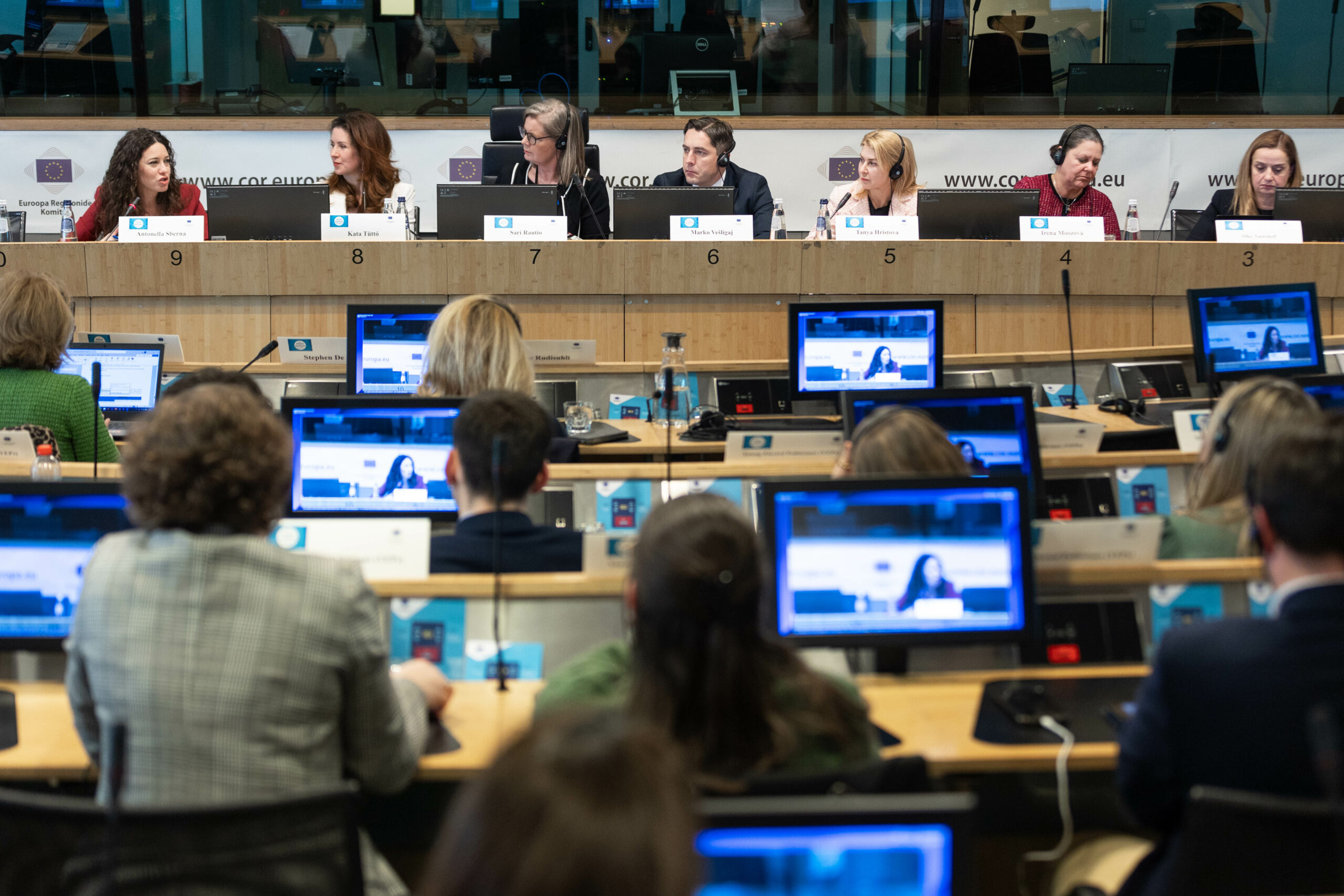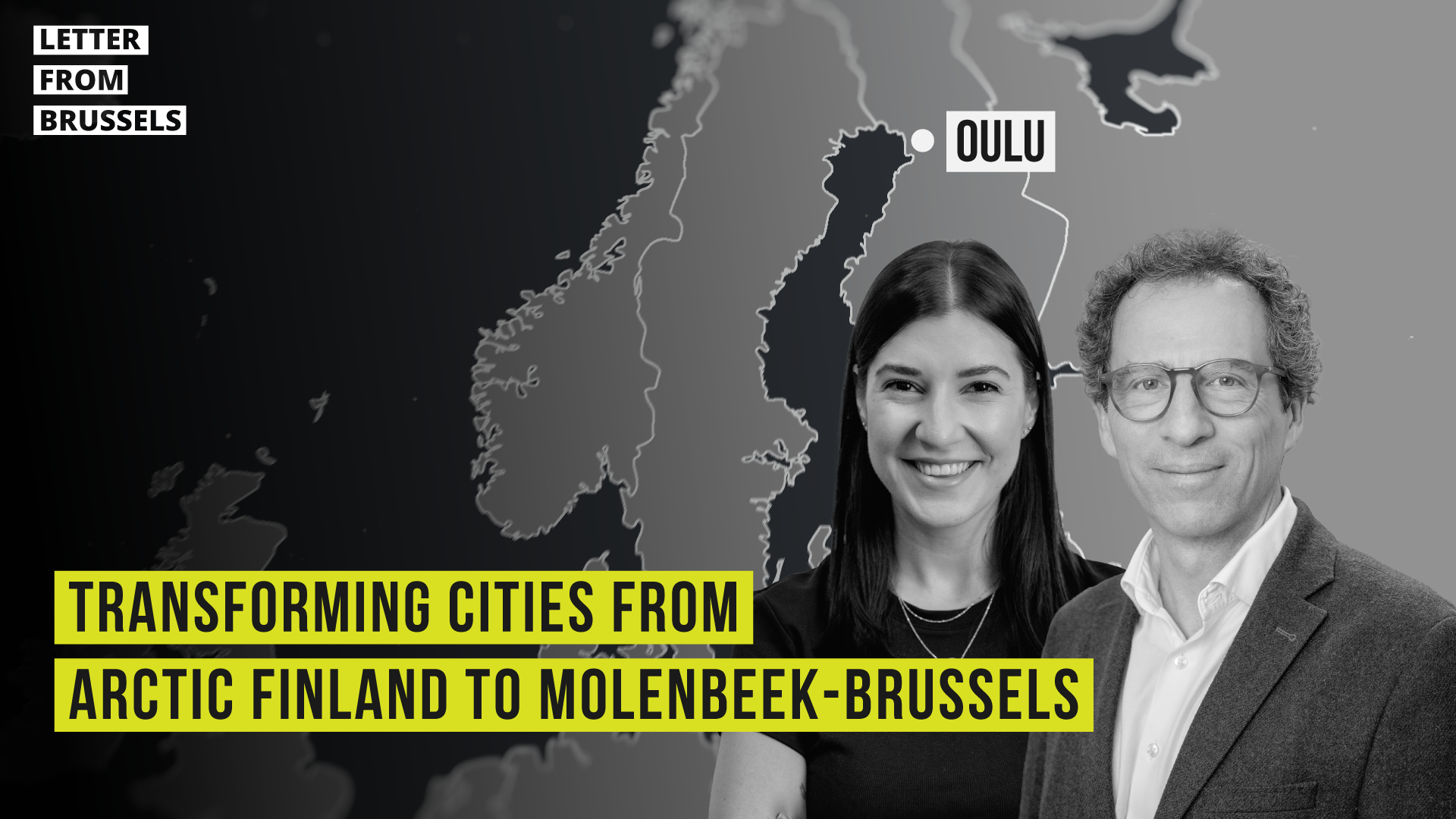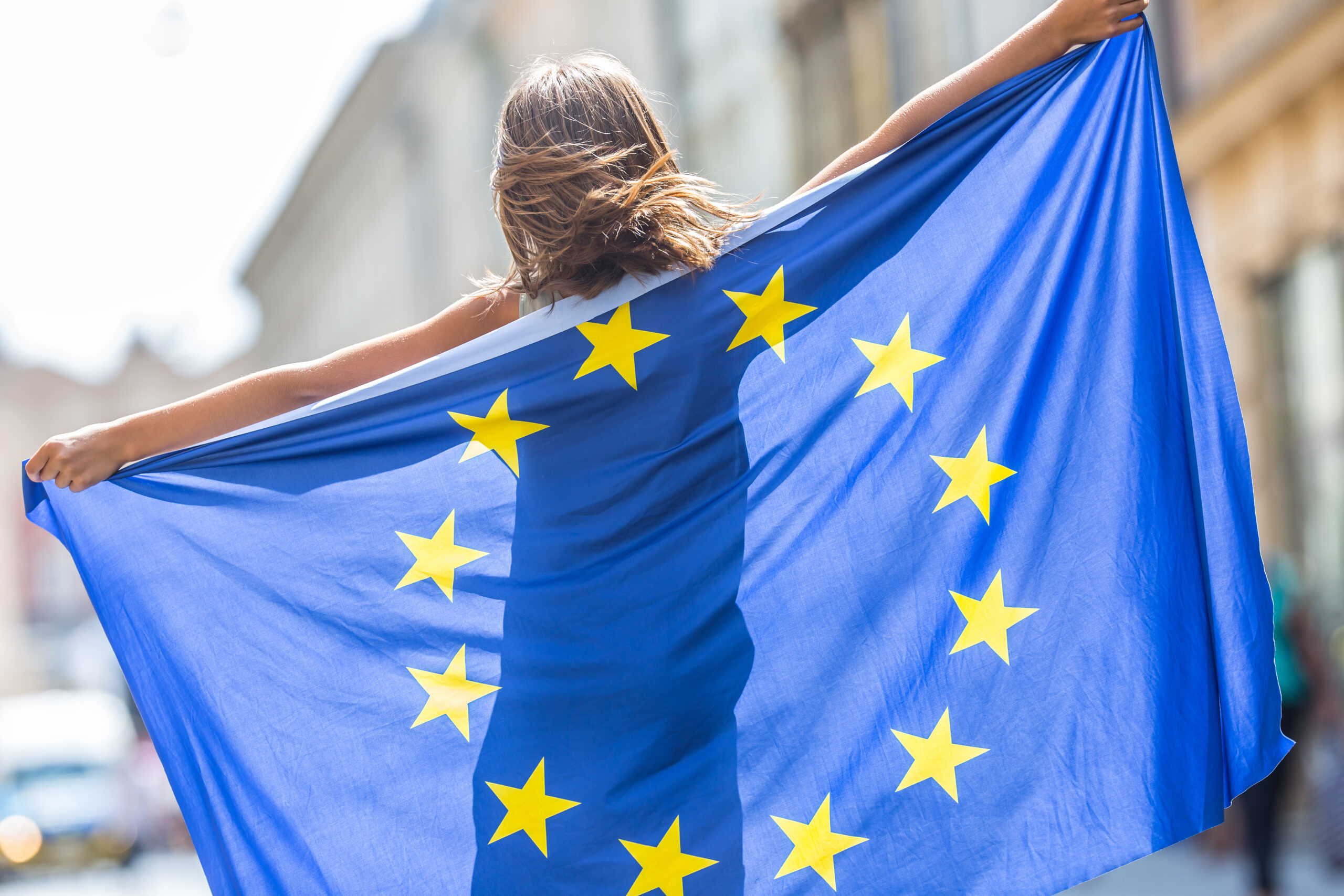Ahead of the International Day for Women’s Rights, members of the Renew Europe Group in the European Committee of the Regions (CoR) highlight the crucial role of subnational authorities in implementing the Roadmap for Women’s Rights and advocating for more women in politics.
As the European Committee of the Regions (CoR) begins the new 2025–2030 mandate, a historic milestone has been reached with the election of Kata Tütto, former deputy mayor of Budapest, as its new president. Tütto is only the second woman in history to hold this position, marking a significant step toward greater gender representation in the institution’s leadership. However, the CoR’s commitment to gender equality goes much further. Last year, Sari Rautio, a city councillor from Hämeenlinna, was appointed special Bureau rapporteur on the CoR Gender Equality Action Plan.
Driving this agenda forward, our political group has been at the forefront of efforts to achieve gender parity within European institutions, championing the Simone Veil Action Plan we adopted in 2022. A key commitment includes ensuring a minimum of 40% female representation in the CoR’s composition, starting with this mandate. With these measures in place, momentum toward true gender equality has never been stronger. In an increasingly polarized global political climate, such progress is not just necessary – it is urgent.
The role of subnational authorities in the new Roadmap for Women’s Rights
In the lead-up to the International Day for Women’s Rights, Sari Rautio met with members of the SEDEC (Social Policy) Commission earlier this week to discuss the European Commission’s newly announced Roadmap for Women’s Rights. During the meeting, local and regional leaders took the floor to share their perspectives, emphasizing the urgent need for structural reforms to achieve true gender balance in both politics and society. Their calls for action underscored the importance of sustained efforts to break barriers and ensure equal representation at all levels of governance. Our SEDEC Coordinator, Anne Rudisuhli, noted the continued underrepresentation of women in politics, stating:
“I would like to speak on behalf of the Renew Europe group on the situation of women in politics. Yesterday afternoon at the CoR, I attended a meeting focused on increasing the number of women elected to office. This debate will undoubtedly persist for decades until binding quotas are established. Without quotas, women will remain a minority in national and international representation. Many of us within the CoR have benefitted from quotas, and the reality remains that 80% of women in politics have experienced abuse and discrimination. I was heartened this week to see young people stepping up and taking the lead, giving me hope for future generations to drive change.”
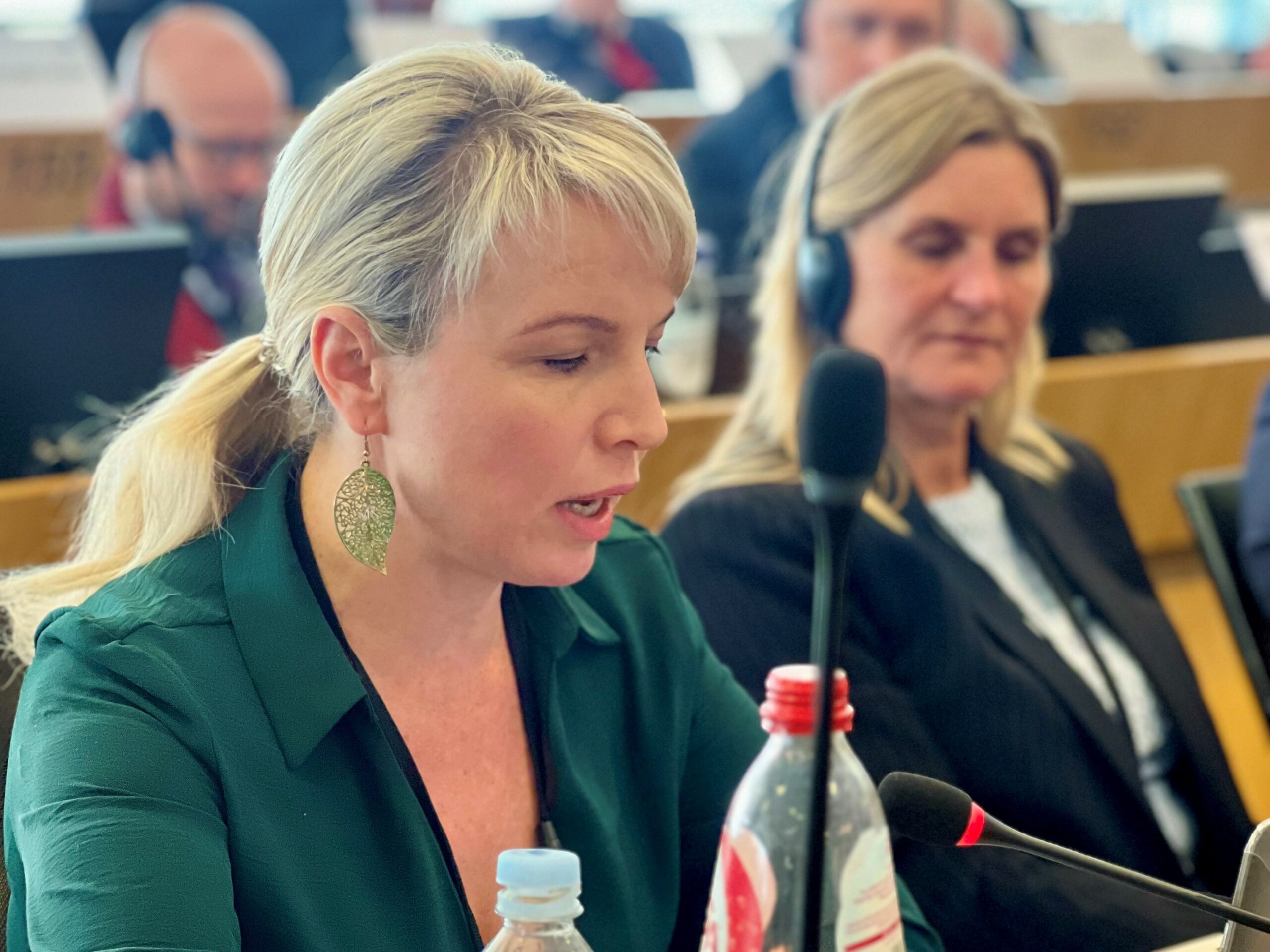
Katrin Krause from Harku, Estonia, highlighted a persistent inequality: despite women achieving higher education levels on average than men, they still face unequal career opportunities. She stressed the urgent need for a new European framework to amplify women’s voices and ensure they have equal chances to succeed professionally. Echoing her concerns, Paul de Bruijn, Alderman of Voorschoten, emphasized the necessity of a structured approach to dismantling barriers for women in politics, calling for concrete measures to foster true gender equality in leadership and governance:
“We must stimulate research and develop a clear roadmap for advancing women’s rights. More funding and support for women at all levels of politics will lead to better, more balanced decision-making. However, many women are still hesitant to enter politics due to systemic obstacles. We need to address these hurdles by engaging more with men, tackling issues such as childcare concerns, and breaking down male-dominated networks that persist in political spheres. If we do not stay vigilant, we risk moving backward on this issue.”
For more women in politics
Speaking at the CoR conference “Women in Leadership: Empowering Women in a Changing World” a day earlier, Anne Rudisuhli reflected on her own path into politics as part of the CoR’s “More Women in Politics” campaign. Her testimony highlighted the challenges for women in political leadership, reinforcing the need for greater gender representation.
Watch the livestream of the event, by clicking on the photo below:
While participants of the event argued that increasing women’s participation in politics and business would boost Europe’s competitiveness, cohesion and democracy, the conference heard that indicators such as the Gender Equality Index 2024 of the European Institute for Gender Equality (EIGE) show women are still deeply underrepresented at many levels of political and business life. In the EU, only about a third of political leaders are women. That is why our Group is not just speaking about gender equality – we are taking concrete action. Our Simone Veil Action Plan helps subnational leaders promote equality between men and women in their local communities. It is based on five key principles, including sexual and reproductive rights, family life, combating violence against women, equality in the workplace, and political representation. As the new CoR mandate unfolds, further implementation of this plan will ensure that gender equality remains at the forefront of our political priorities, reinforcing our commitment to building a fairer and more inclusive political landscape.
On this International Women’s Day, we reaffirm our commitment to a Europe where women’s voices are heard, respected, and empowered at all levels of decision-making. The journey towards full gender equality is far from over, but Renew Europe CoR is determined to lead the way.

